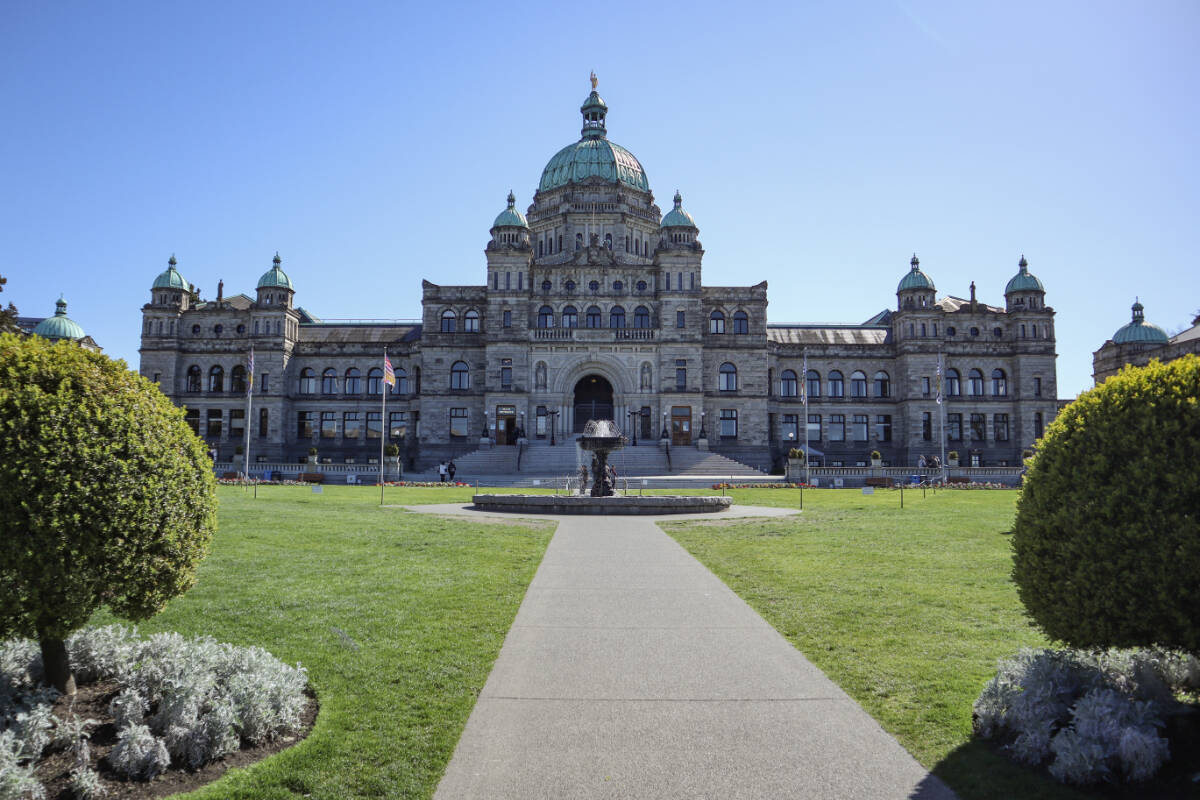The B.C. legislative assembly has released an action plan that aims to recognize the need to address historical injustices by acknowledging the past and working to build new relationships with Indigenous People.
On Wednesday, May 8, the province released the Reconciliation Action Plan, the first of it’s kind in B.C., that will outline the commitments and actions the assembly will undertake to contribute towards reconciliation.
The plan includes five commitments and seven initial actions, shaped by input received from First Nations leaders through engagement and outreach.
“As speaker, it’s my priority to ensure every person who visits the Parliament buildings feels they are welcome, and that they belong here. Reconciliation with Indigenous peoples is an essential part of this work,” said Speaker of the legislative assembly Raj Chouhan in a news release. “It has been my honour to begin building a new relationship with First Nations leaders, both in Victoria and throughout the province – and to acknowledge that true reconciliation is not achieved through a single act, but rather through ongoing commitment and concerted effort.”
Last year, the speaker established the Speaker’s Indigenous Reconciliation Advisory Committee to receive guidance directly from Indigenous leaders on how the legislative assembly could most meaningfully engage with Indigenous Peoples and advance reconciliation, and in its first year, the committee included four Indigenous leaders from Tsawwassen First Nation, Musqueam Indian Band, Squiala First Nation, and Williams Lake First Nation.
SIRAC members Taylor Baker and Howard Grant joined Chouhan to release the Reconciliation Action Plan at an event held at the Parliament Buildings. Other guests included representatives from the First Nations Leadership Council, Songhees Nation and Esquimalt Nation, as well as local MLAs.
“The legislative assembly of British Columbia is intended to be the people’s house and for a long time the people’s house conveyed a truth that did not acknowledge Indigenous peoples,” noted Grant in the release. “The legislative assembly’s Reconciliation Action Plan acknowledges the truth of what Indigenous peoples have endured and its tabling signifies the first brick to rebuild the collective people’s house.”
Among the actions the assembly commits to in the plan is incorporating Indigenous customs and cultures into the practices and rules of the assembly, issuing an official apology to First Nations in B.C. and developing a plan for a memorial garden to commemorate the legacy of residential schools in B.C.
“This legislative assembly has made some big advances towards reconciliation. It’s an important moment in time,” Adam Olsen, MLA for Saanich North and the Islands, and a member of Tsartlip First Nation said in a separate release. “We’re in a place where we need to be open and honest in our discussions, which is key to getting our job done right. The plans we’re making now build on what past leaders left unfinished when it came to reconciliation. We now understand that reconciliation is not something to be postponed but to be pursued actively.”
The clerk of the legislative assembly will be mandated to implement the plan, ensuring all MLAs and staff have opportunities to support and participate in reconciliation activities and commitments. The Speaker of the assembly will oversee implementation of the current and future actions included in the action plan, with guidance from the SIRAC.
Read More: Victoria project’s homelessness survivors call for reform at B.C. legislature

